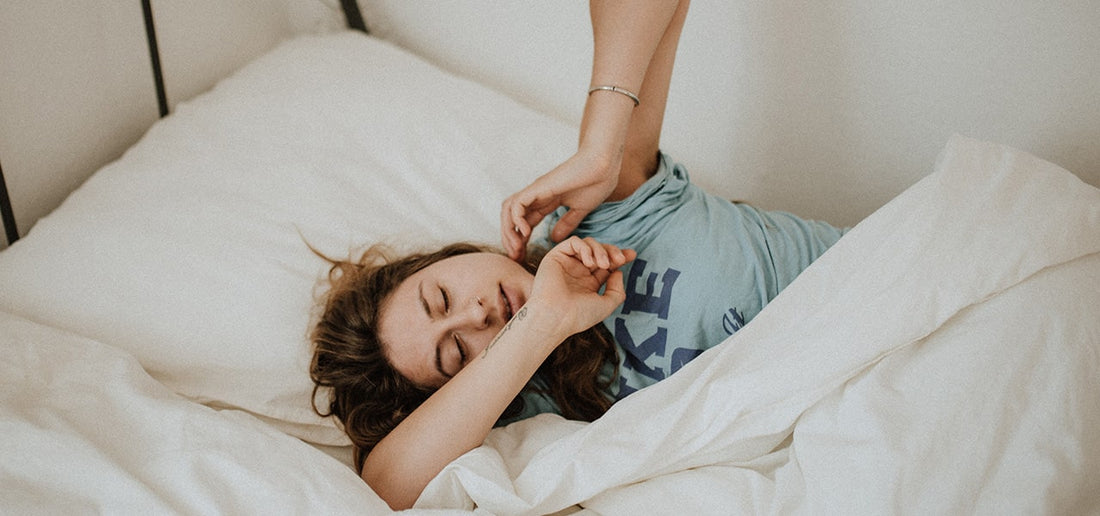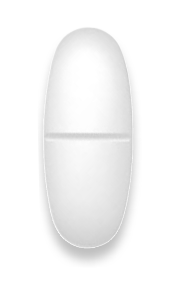What can you do about tiredness in the morning?

Sometimes waking up can be a real struggle. We may feel low on energy, cranky, unable to shake off tiredness, and desperately needing a caffeinated drink to function. And for some people, morning fatigue can linger throughout the day.
So what can you do to combat morning tiredness? We'll take a look at the causes of tiredness and give some simple tips to combat tiredness.
Why am I always so tired in the morning?
We go into this in detail in our article Why do I wake up tired? The tiredness we feel when we wake up is called sleep inertia 1 and can last for minutes or hours.
While sleep inertia is perfectly normal, there are factors that can make it significantly worse. 2 These include stress, poor diet, or not getting enough sleep. 3 Of course, an underlying medical condition such as insomnia, 4 sleep apnea 5 or another type of sleep disorder can also be a major contributing factor to morning fatigue.
How not to feel tired in the morning
Fortunately, there are a number of ways to combat morning fatigue. Here are 5 simple and easy to follow tips:
- Don't hit the snooze button. It may seem reasonable to try to sleep 10 to 15 minutes longer to feel more rested, but there is evidence that the opposite is true. Interrupted or fragmented sleep caused by hitting the snooze button has a negative impact on mood and cognitive abilities. 6 It is recommended that you set only one alarm and stick to it. 7
- Drink a glass of water as soon as you wake up. Dehydration or lack of water can affect cognitive abilities and mood 8 and can also lead to fatigue. 9 The US National Academies of Sciences, Engineering and Medicine recommend a water intake of about 2.7 to 3.7 liters per day. 10
- Practice yoga or exercise daily. Yoga is considered a mindful form of exercise, and studies have found that it reduces stress, increases melatonin levels, and reduces fatigue - all of which can lead to better sleep quality. 11 Studies also suggest that a short bout of exercise in the morning can help minimize the effects of sleep inertia. 12
- Don't skip breakfast. Skipping breakfast can have a detrimental effect on blood sugar levels 13 , and studies have shown that it can increase the risk of cardiovascular disease. 14 There is evidence that breakfast foods that are high in whole grains and cereal fiber and low in fast carbohydrates (such as energy drinks, cakes and pastries, potatoes or pasta) promote metabolic health and give you a much-needed energy boost. 15
- And finally, remember to get outside during the day. It's easy to take this for granted, especially if you work a shift or desk job, but exposure to daylight can play an important role in aligning your circadian rhythm, or internal clock. Our circadian rhythm is most sensitive to light 2 hours before bedtime, during the night, and 1 hour after waking. 16 Getting a little sunlight in that one hour can impact when we naturally fall asleep and wake up - which in turn impacts how refreshed we feel when we wake up. 17
- Bonus advice: If you find that you still feel tired in the morning even after trying all of the above (or if you work shifts and are unable to implement the above measures on a regular basis), then try B・SYNC ON . It's a clinically tested supplement designed to help you wake up with ease. It contains caffeine, zinc, vitamin B5 and vitamin B12, all natural ingredients, and can also be used to regulate or reset your internal clock. Simply take it before bed and its sustained release technology is proven to help you wake up refreshed and take on the day.
Good sleep hygiene
All the tips we suggest contribute to good sleep hygiene. If you've read our post on good sleep , you'll know that good sleep hygiene can make the difference between getting enough sleep and not getting enough sleep, between waking up refreshed or sluggish.
However, if you have tried all of our suggestions and continue to experience a recurring problem that affects your daily activities, physical well-being or mental health, then you should make an appointment with your GP for a medical evaluation. It could be that you have a sleep disorder or a medical problem that needs treatment or medication.
Sources
- https://www.cdc.gov/niosh/work-hour-training-for-nurses/longhours/mod7/03.html
- https://www.ncbi.nlm.nih.gov/pmc/articles/PMC5337178/
- https://www.nhs.uk/live-well/sleep-and-tiredness/self-help-tips-to-fight-fatigue/
- https://www.nhs.uk/conditions/insomnia/
- https://www.nhs.uk/conditions/sleep-apnoea/
- https://www.ncbi.nlm.nih.gov/pmc/articles/PMC6689426/
- https://www.ncbi.nlm.nih.gov/pmc/articles/PMC6689426/
- https://www.ncbi.nlm.nih.gov/pmc/articles/PMC2908954/
- https://www.ncbi.nlm.nih.gov/books/NBK555956/
- https://www.mayoclinic.org/healthy-lifestyle/nutrition-and-healthy-eating/in-depth/water/art-20044256
- https://link.springer.com/article/10.1186/s12888-020-02566-4
- https://www.frontiersin.org/articles/10.3389/fphys.2020.00254/full
- https://www.tryhabitual.com/journal/how-does-when-you-eat-impact-blood-sugar
- https://www.mdpi.com/2308-3425/6/3/30
- https://academic.oup.com/advances/article/7/3/613S/4558073
- https://www.cdc.gov/niosh/emres/longhourstraining/light.html
- https://www.cdc.gov/niosh/emres/longhourstraining/light.html









